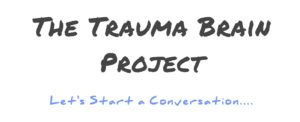What would you do if a friend confessed to you that she felt really badly about something she had recently done, or really didn’t like something about herself? You would probably feel some compassion for your friend and try to think of something to say to help her feel better, right? And yet what do you do to yourself when you feel badly about something you’ve done? What thoughts come about when you think of the things about yourself that you don’t like? For most of us those thoughts aren’t about being compassionate!
It’s not a secret that we tend to treat others better than we treat ourselves, often to the point where we can offer compassion to others, but have difficulty offering it to ourselves, or even receiving it from others. How much we are able to love ourselves, I think, is directly related to how much we can allow others to love us. If we beat up on ourselves, on some level we begin to think of ourselves as inherently flawed and unlovable. This breeds suspicion and disbelief when others see us differently. We might even back away from people or relationships because we aren’t used to allowing the light of love and compassion into our hearts. To be loved or lovable is unfamiliar.
A few months ago I told someone that I felt I had made friends with my mind. The person responded first with surprise and then with disappointment. “I wish I could do that,” she said. In our culture we tend to think it unlikely that this could ever be possible. Instead we believe that we need to control, cover up, pretend, medicate and distract. And yet, it is possible. In Buddhism, this acceptance of self is called ‘maitri.’ Pema Chodron, a wonderful Buddhist teacher describes maitri on this youtube video as “unconditional friendliness toward oneself.” She describes maitri as “the basis of compassion.”
Think of it, what if you were able to just think of yourself as being okay? What would your life be like if you were able to cut yourself some slack and just love yourself as you are without trying to be more perfect, more knowledgeable, more attractive… How much stress do we put on ourselves trying to be more or ‘better’ because we are so dissatisfied, so averse to what we are now? And yet, have we even looked to see what is actually here or is it just an assumption that what we are couldn’t possibly be enough?
So, how to go about cultivating this self-compassion? I think the first step is really to welcome the possibility that you could be unconditionally friendly towards yourself, that you could be worthy of loving. From there, I’ve found that the universe is only too happy to lead you into more and more lessons and revelations. Sometimes the lessons are easy and sometimes not. It is not that life suddenly becomes a bed of roses, but that you begin to see the difficulties as more ways of deepening in relationship with yourself and with others. Any relationship takes effort and most relationships work better if the focus is on the other person’s positive qualities vs. judging their flaws.
In my experience, a simple way to begin to cultivate self-compassion is to spend some time acknowledging the aspects of yourself that you actually do appreciate. Since we have such a tendency to judge things as good or bad, let me be clear that the other aspects aren’t bad per se. It is just easier at first to love ourselves based on those things we perceive as ‘positive’ qualities. It might take some time (it took me days the first time I tried to come up with one thing), but just finding one thing you appreciate about yourself is like clearing a little hole on the grimy window of our past perception so that the light can begin to shine through.
Make a phrase with your one ‘positive’ quality (or more if you have more than one). For me it was “I am compassionate.” Notice how your body feels when you say this phrase. And when you find your mind going into the place of self-judgment or self-criticism, let this phrase be your ray of light. Once that tiny ray of light is experienced, the shadows become less dense and the darkness begins to give way. Repeat your phrase whenever you think of it. Eventually you might find it pops up on its own!
In the next few blog entries I’ll be offering more tools that have helped me to bring light into my shadows. If you have other tips, comments or experiences to offer, please feel free to share those as well by clicking on the Comments link below.
Until next time, may you live with ease ☺
 I recently had the honor of being on a panel of body-centered therapists following the reading of a play by Dayle Ann Hunt titled The Trauma Brain Project.
I recently had the honor of being on a panel of body-centered therapists following the reading of a play by Dayle Ann Hunt titled The Trauma Brain Project.

 How are you feeling now? You can repeat that sequence one more time if you’re feeling a little more focused or settled than you were before you started.
How are you feeling now? You can repeat that sequence one more time if you’re feeling a little more focused or settled than you were before you started.